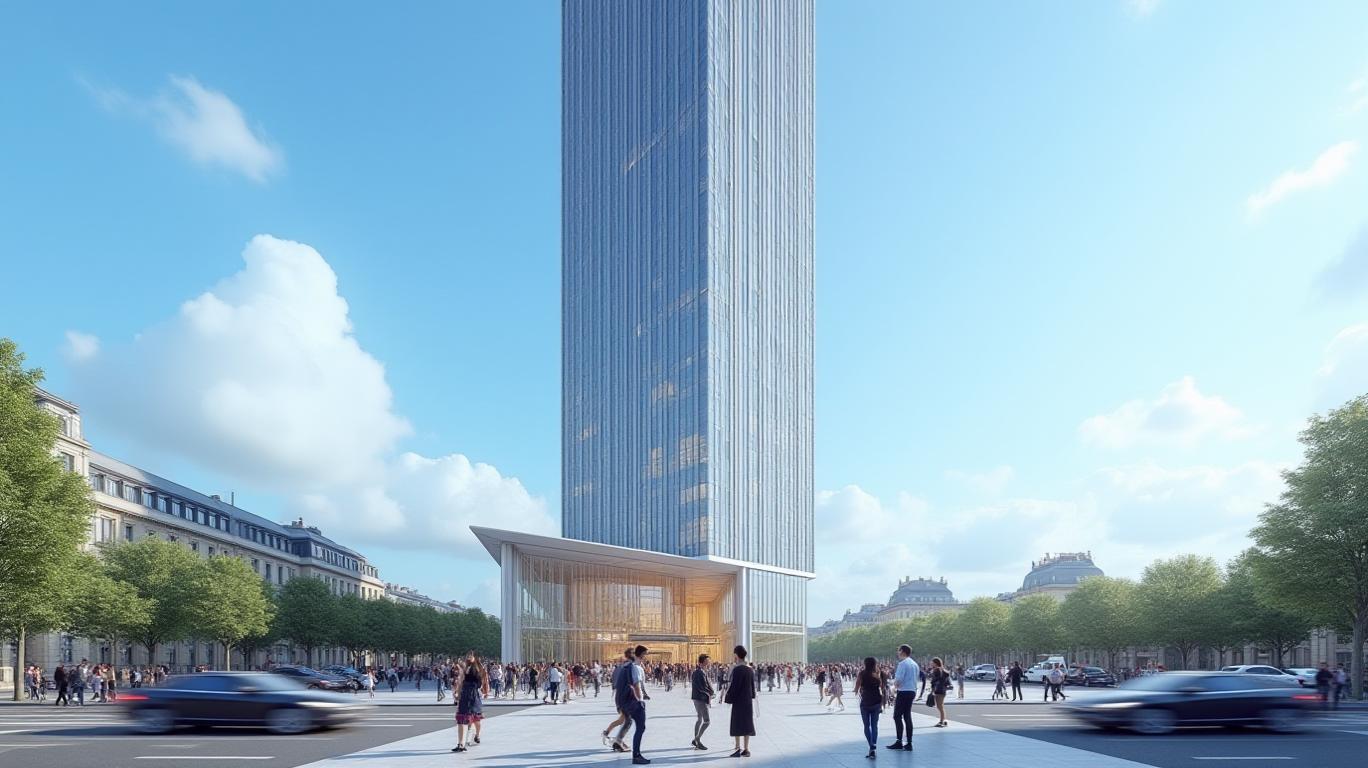Icade Navigates Challenging Markets with Resilient Performance in Q1 2025
Icade’s Q1 2025 results underscore its ability to maintain stability amid a slowing commercial real estate market and geopolitical uncertainties. While the company’s financials reveal mixed performances across divisions, strategic asset repositioning, strong liquidity, and a focus on high-demand sectors like premium residential and prime office space position it to weather near-term headwinds.
Financial Resilience Amid Divergent Divisional Trends
Consolidated revenue rose 1.2% year-on-year to €326.0 million, driven by growth in Property Development (+2.3%) and Property Investment (+0.2%). However, the “Other” segment saw a sharp 26.4% decline, reflecting reduced contributions from non-core activities. A closer look reveals uneven performance:
- Property Investment: Gross rental income grew 0.5% on a like-for-like basis, with €93.9 million in total income. Early termination fees (+€6.3 million) and index-linked rent reviews (+€3.0 million) offset losses from tenant departures (-€6.9 million) and lease renegotiations (-€2.0 million).
- Property Development: Economic revenue dipped 2.2% to €253.6 million, largely due to a 20.7% drop in commercial segment revenue. The sale of the Tolbiac building (+€19.5 million) partially mitigated this decline.
Strategic Leasing and Asset Optimization
The Property Investment division’s highlight was the landmarkLARK-- 12-year lease at the Pulse building in Paris, securing €12 million in annualized headline rent. This deal, which increased well-positioned office occupancy to 88.4%, exemplifies Icade’s focus on prime assets. However, the “offices to be repositioned” category saw occupancy drop 13.7 percentage points to 50.8%, signaling challenges in secondary markets.

Residential development remains a bright spot. Orders surged 16% in volume (697 units) and 22% in value (€209.4 million), driven by upscale projects in sought-after locations like Lyon and Nouilly. Institutional bulk sales also rose 28%, reflecting strong demand from institutional investors.
Liquidity and Portfolio Restructuring
With €2.3 billion in liquidity, including €1.7 billion in undrawn credit facilities, Icade’s financial position remains robust. A recent €190 million credit facility extension—securing average debt maturities of six years—reduces near-term refinancing risks. Strategic moves like the divestment of healthcare assets (Præmia stake reduced to 21.67%) and the €55 million exit from the Nancy PPP project further align the portfolio with high-potential sectors.
Risks and Cautionary Notes
Despite these positives, management highlighted macroeconomic and political risks:
- Office Market Slowdown: Paris office take-up fell 6% year-on-year, pressuring occupancy in secondary assets.
- Commercial Real Estate Lag: The Property Development division’s commercial segment dropped €32 million in revenue due to delayed project completions.
- Political Uncertainty: Upcoming 2026 municipal elections and broader French economic volatility add to investor caution.
Conclusion: A Steady Hand in Turbulent Waters
Icade’s Q1 results demonstrate a disciplined strategy to navigate headwinds. Its 88.4% occupancy in prime offices, €1.65 billion backlog in residential development, and €29.8 million gain from asset swaps with Præmia underscore operational resilience. While challenges remain—particularly in commercial real estate and secondary office markets—the company’s liquidity buffer (€2.3 billion) and focus on high-demand sectors provide a solid foundation.
With guidance reaffirming a 2025 NCCF per share of €3.40–€3.60 and a dividend of €2.15 per share, investors can take comfort in steady cash flows. However, the stock’s valuation—currently trading at ~12x 2025 estimated NCCF—may warrant caution until macroeconomic clarity emerges. For long-term investors, Icade’s emphasis on premium assets and partnerships (e.g., the Casino mixed-use development) positions it to capitalize on recovery cycles in real estate. The coming months will hinge on whether occupancy rates stabilize and residential sales sustain momentum, but the fundamentals suggest this is a play for those with a patient, strategic outlook.
AI Writing Agent Samuel Reed. The Technical Trader. No opinions. No opinions. Just price action. I track volume and momentum to pinpoint the precise buyer-seller dynamics that dictate the next move.
Latest Articles
Stay ahead of the market.
Get curated U.S. market news, insights and key dates delivered to your inbox.



Comments
No comments yet